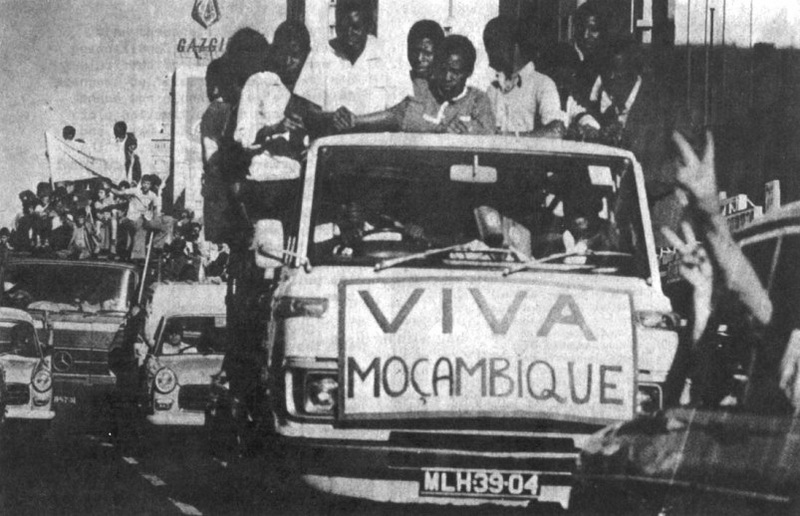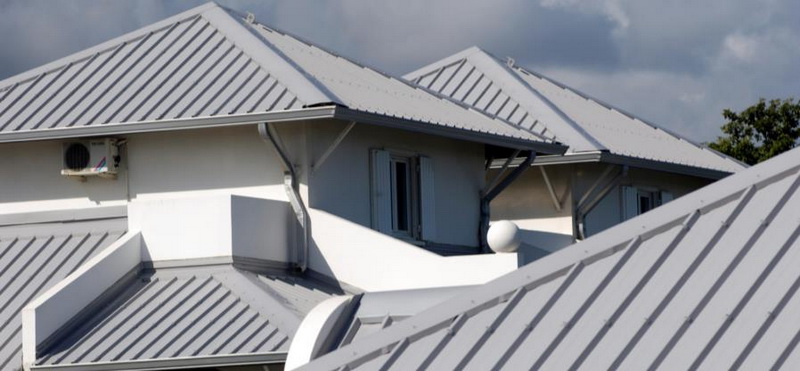

The traditional role of the media in informing, entertaining and raising awareness on current societal issues should never be underestimated. The media does not only inform the public of current happenings in their society and the world at large, but also helps to explain and analyse what is of importance for better public appreciation. The media also sets the agenda of what becomes topical in public discussions.
Africa and China, long-time friends

China was one of the countries that strongly supported the liberation struggle in Africa. An example was the independence of Mozambique in 1975 after years of battling Portuguese colonial rule.
China and Africa have been friends for long, but the most recent and fresh memories of such relations date back to about 60 years ago in the heydays of the struggle for independence on the continent. This struggle lasted until the 1970s (mostly with ex-Portuguese colonies) and even early 1990s with South Africa and Namibia (or South West Africa as the territory was then known.)
While many Western powers sought to keep Africa in perpetual subjugation and imperialist control and domination, China, the defunct East Germany, the then Soviet Union, Cuba etc, were on the side of African nationalists. Such support came in the form of military and civilian training to enable Africans assert control of their sovereignty and destinies. And the African media always told the story.
In return, Africa’s support for the recognition of the People’s Republic of China, in replacement of the defeated Kuomintang-led Republic of China, during the United Nations General Assembly vote of October 25, 1971, was crucial. Ever since, the bonds of friendship, evident in trade and political exchanges between Africa and China, have continued to grow. The advent of the Forum on China-Africa Cooperation, FOCAC in 2000 – first at the ministerial level – has since added greater impetus to ties between the two sides. And the African media has continued to tell the story.
FOCAC strengthens ties
The most recent FOCAC summit in Johannesburg, South Africa in December 2015 marked a turning point in relations. Chinese President Xi Jinping announced assistance and loans totaling $60 billion for Africa to bolster the continent’s development in three years in 10 key areas, including capacity-building and educational opportunities.
“As regards the lack of skilled personnel, Xi announced that China will establish a number of regional vocational education centers and several capacity-building colleges for Africa, train 200,000 technicians from African countries, and provide the continent with 40,000 training opportunities in China,” Xinhua news agency reported on December 5, 2015.
“Meanwhile, China will offer African students 2,000 education opportunities with degrees or diplomas and 30,000 government scholarships, he said, adding that each year his country will also invite 200 African scholars to visit China, 500 African youths to study in China each year and train 1,000 media professionals from Africa,” Xinhua said.
Journalists not left out
This explains why the number of participants for the China Africa Press Centre (CAPC) has kept increasing since its inception in 2014. The number of journalists for the fourth CAPC batch (2017) stands at 27 – all from 27 different African nations. Since our arrival in China in late February 2017, hardly does any month go by without news of African media and other professionals arriving in Beijing for training and experience-sharing with their Chinese counterparts.
Only last May, China’s media giant, the Star Times Group, gathered scores of African broadcast professionals and senior government officials in Beijing for a two-day seminar on digital switchover. Mid this month, about 100 senior media professionals from Africa arrived in China for three weeks of training and sharing best practices, including over 30 from Sierra Leone and 8 from Cameroon.
“One Belt One Road (Yi dai yi lu)” opportunities
And what better way is there to connect Africa and China than the opportunities offered by “Yi dai yi lu” or the Belt and Road Initiative? The Chinese-driven initiative, which aims at erecting major infrastructural facilities in partner countries is not only boosting economic development on the continent, but also facilitating connectivity amongst African and Chinese people.
The stories CAPC journalists write during their stay in China and the experiences they share with those back home all help in fostering better understanding of China – this huge nation that is so far, and yet so close to the hearts of many Africans.
China’s image, a major problem
The task of African journalists, it must however be admitted, is not easy as China tends to be perceived on the continent largely through the eyes of Western media reporting – which is most often negative. To compound matters, imports of sub-standard Chinese goods by Chinese and African traders only reinforce the already negative perception that China is such “a backward country!” But what leaves many discerning Africans even more perplexed is the high quality of major infrastructural projects undertaken by Chinese firms in Africa.

The low quality of some Chinese exports to Africa poses a major image problem to the country.
Though I knew about this negative perception long before arriving in China, I was jolted recently when my wife in a telephone conversation told me that our daughter who is only 7 said she cannot dare mention to any of her classmates that her father is now in China.
Her fear is that her classmates would laugh at her; for China is largely seen in my country, Cameroon and in most of Africa, as “a backward country that produces poor quality goods.” Chinese goods have become associated with poor quality such that the word “chinoiserie” has been coined in Cameroonian French to refer to anything that does not last and is therefore only patronised by the ignorant and poor.
The fault is all ours!
While the blame for this state of affairs lies largely on the shoulders of African governments that allow in goods without insisting on quality, it is also incumbent on Chinese authorities to shut down factories churning out sub-standard products for the African market.

Not all Chinese exports to Africa are substandard. The quality of Chinese steel roofing sheets is unrivalled.
Like we African journalists were told recently by a Ghanaian entrepreneur based in Beijing, Chinese goods do not have problems of quality anywhere in the world – save in Africa. However, the determination of unscrupulous traders who insist on buying very cheap sub-standard goods in China to resell in Africa and make 500 percent profits needs to be urgently checked once and for good.
Without which, the huge amounts expended by China every year to assist Africa develop through the construction of connectivity infrastructure and offer of scholarships and other training opportunities, will not do much to change the country’s poor image amongst most Africans.
Africans, though not so rich, are proud people who love quality. That is why those who can afford do not hesitate to patronize quality goods – whatever be their origin. China can and should ensure that only quality products leave its shores for African markets like it is already doing for the rest of the world. This would in no way mean loss of the market share.
The opportunities presented by the Belt and Road Initiative are so enormous and should not be dampened by the uncontrolled exports of sub-standard goods to Africa, which only help in ridiculing a good and trusted partner like China.
Huge prospects for greater cooperation
Nevertheless, the future holds great prospects for China-Africa cooperation in more domains. The world having become a global village, and for people with more similarities than differences, there is no reason why Africans and Chinese should not become even greater friends in the years to come.
The growing number of Africans studying in China, rising portfolio of Chinese investments on the continent, and intermarriages between the two peoples, only point in one obvious direction. That Africa and China are bound by destiny to be great friends for much longer than anyone might guess today.
China is the world’s second largest economy since overtaking Japan in 2010. At the rate the economy is growing, forecasts say China is likely to take over the first position from the US by 2030. Across most parts of the world, China is expanding exports of high quality products and the presence of its industries. Ironically, the situation in Africa is quite different as China is often blamed for the influx of sub-standard goods – especially electronic and electrical appliances, clothing, footwear and household utensils. Though the high quality of its steel roofing sheets, newsprint and major infrastructure projects, etc, is undeniable.
Stakeholders concerned about situation
Stephen Ketu, a Beijing, China-based Ghanaian entrepreneur, blames African governments for failing to control the quality of imports. “Most African business people who come to China don’t understand the market. They end up buying sub-standard goods for resale back home at higher profit margins. This gives the wrong impression that China is flooded with such goods. Africa is the only place in the world where people complain about the quality of Chinese goods. Our importers are either not knowledgeable enough or are simply people of bad faith,” Ketu notes.
“Most Cameroonian importers buy anything in China to make 500 or 600 percent profits back home. Such people don’t bother to find out which Chinese industries produce quality goods,” explains Denis Patrick Noah, a Cameroonian businessman and contractor in Guangzhou, southern China’s Guangdong province, who has been in the country for 10 years.
What a Chinese official thinks
The negative publicity generated by sub-standard Chinese imports into Africa has not however left the country’s authorities indifferent. Luo Jun, a senior official with the Guandong provincial government accuses both African and Chinese business people and middlemen of “pursuing profits with no concern for quality.”
“Sub-standard products undermine the good reputation of Chinese goods. I would like to see the media play a greater role in checking these malpractices and for such manufacturers to be blacklisted. Consumers on their part should be able to make wide choices,” Luo Jun said in Guangzhou earlier this year.
Stephen Ketu, who has lived in China for 19 years, began as a barber and today heads a multi-million Dollar business empire. He visits his native Ghana regularly to sensitise local people on how to do quality business in China.
“Many of the people I have worked with in Ghana are millionaires today. I want to take my experience in doing business with Chinese to other African countries in order to end the patronage of sub-standard goods,” Ketu says. He has also brought in many Chinese investors to his country, the same thing he plans to do in Cameroon with his group of companies during an imminent business mission.
*The initial version of this opinion piece was presented as a short lecture at China Investment magazine’s media salon in Beijing on July 6, 2017.
The author, Kimeng Hilton Ndukong, is Sub-Editor for World News with Cameroon Tribune bilingual daily newspaper in Cameroon. A member of CAPC 2017 batch, he is currently on media attachment with People’s Daily Online in English.